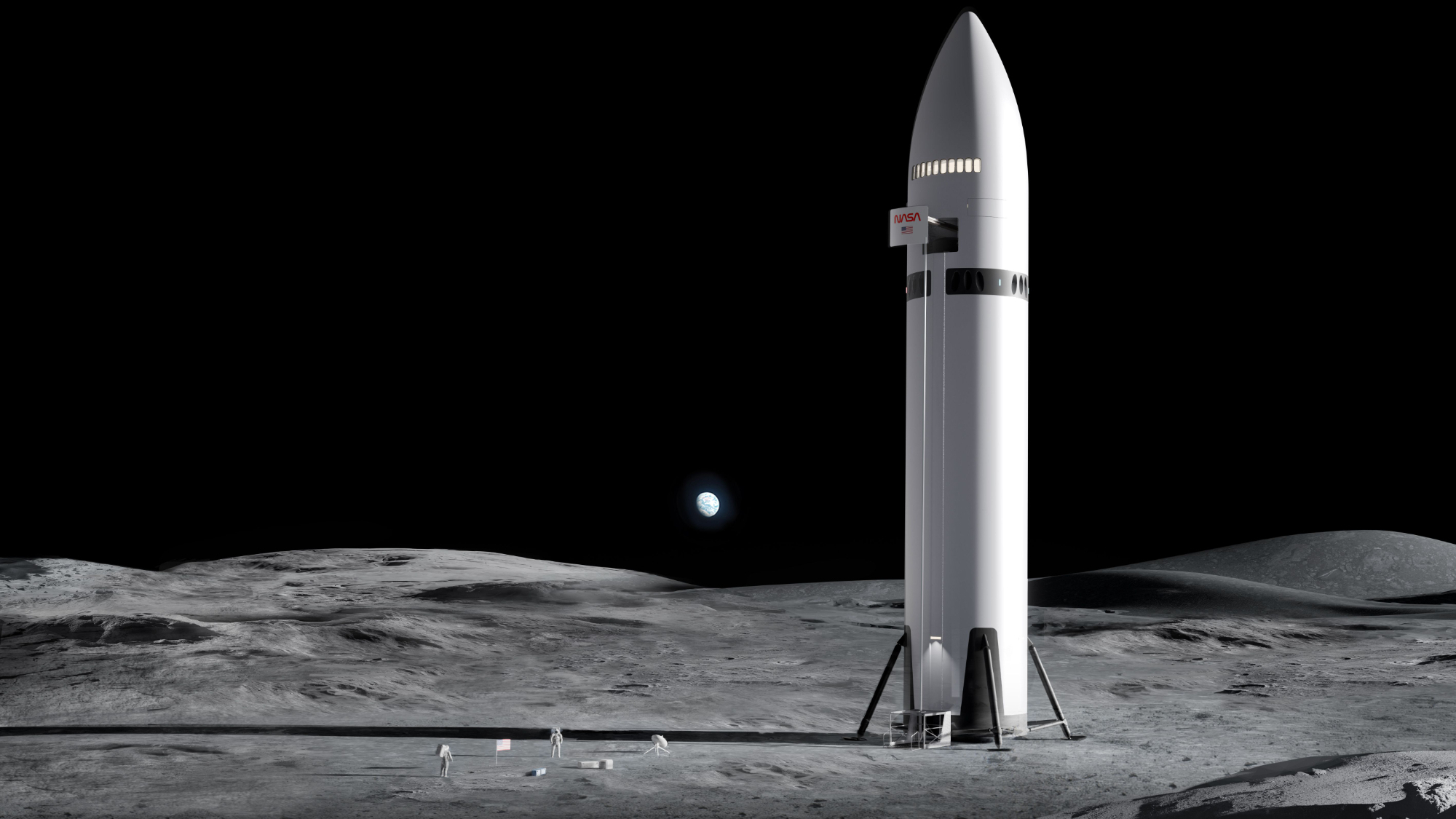SpaceX fires up powerful Falcon Heavy rocket ahead of April 18 launch

Breaking space news, the latest updates on rocket launches, skywatching events and more!
You are now subscribed
Your newsletter sign-up was successful
Want to add more newsletters?

Delivered daily
Daily Newsletter
Breaking space news, the latest updates on rocket launches, skywatching events and more!

Once a month
Watch This Space
Sign up to our monthly entertainment newsletter to keep up with all our coverage of the latest sci-fi and space movies, tv shows, games and books.

Once a week
Night Sky This Week
Discover this week's must-see night sky events, moon phases, and stunning astrophotos. Sign up for our skywatching newsletter and explore the universe with us!

Twice a month
Strange New Words
Space.com's Sci-Fi Reader's Club. Read a sci-fi short story every month and join a virtual community of fellow science fiction fans!
SpaceX's powerful Falcon Heavy rocket is getting ready to fly again.
Elon Musk's company conducted a "static fire" with the Falcon Heavy on Thursday (April 13), briefly igniting the vehicle's 27 first-stage Merlin engines on the launch pad at NASA's Kennedy Space Center (KSC) in Florida.
Static fires are common preflight tests, designed to ensure that a rocket's various systems are primed for launch. And that liftoff is just around the corner for the Falcon Heavy: It's scheduled to fly from KSC on Tuesday (April 18) at 7:29 p.m. EDT (2329 GMT).
You can watch the liftoff live here at Space.com, courtesy of SpaceX, when the time comes.
Related: SpaceX's 1st Falcon Heavy rocket launched Elon Musk's Tesla into space 5 years ago
Static fire of Falcon Heavy complete; targeting Tuesday, April 18 for launch of @ViasatInc’s ViaSat-3 Americas mission from Launch Complex 39A in Florida. The 57-minute launch window opens at 7:29 p.m. ETApril 13, 2023
The upcoming launch will send two satellites toward geostationary orbit. The primary payload is the 14,000-pound (6,400 kilograms) ViaSat-3 Americas, a broadband satellite that will be operated by California-based company Viasat.
The secondary satellite flying on Tuesday is Arcturus, a communications craft belonging to San Francisco-based Astranis Space Technologies.
Breaking space news, the latest updates on rocket launches, skywatching events and more!
"Although it only weighs 300 kg [660 pounds], the mighty communications satellite has the ability to provide data throughput up to 7.5 Gbps for ... Alaska and the surrounding region," EverydayAstronaut.com wrote of Arcturus in a description of the Falcon Heavy mission.
The Tuesday launch will be the sixth overall for Falcon Heavy, which debuted in February 2018 with a test flight that sent Musk's red Tesla Roadster into orbit around the sun with a spacesuit-clad mannequin at the wheel.
The Falcon Heavy's most recent flight, a classified mission for the U.S. Space Force called USSF-67, occurred in January of this year.
The Falcon Heavy consists of three strapped-together first stages of SpaceX's Falcon 9 rocket, with the central booster topped by an upper stage and the payload(s). These three first-stage boosters are designed to be reusable, but none of them will be recovered on Tuesday, according to EverydayAstronaut.com. (There apparently won't be enough fuel left over for the boosters to steer themselves back to Earth for safe touchdowns.)
Mike Wall is the author of "Out There" (Grand Central Publishing, 2018; illustrated by Karl Tate), a book about the search for alien life. Follow him on Twitter @michaeldwall. Follow us on Twitter @Spacedotcom or Facebook.

Michael Wall is a Senior Space Writer with Space.com and joined the team in 2010. He primarily covers exoplanets, spaceflight and military space, but has been known to dabble in the space art beat. His book about the search for alien life, "Out There," was published on Nov. 13, 2018. Before becoming a science writer, Michael worked as a herpetologist and wildlife biologist. He has a Ph.D. in evolutionary biology from the University of Sydney, Australia, a bachelor's degree from the University of Arizona, and a graduate certificate in science writing from the University of California, Santa Cruz. To find out what his latest project is, you can follow Michael on Twitter.
